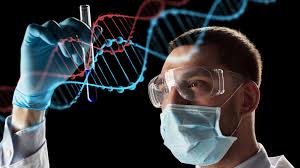Applications of Nuclear Science and Technology in Medicine

Nuclear science and technology have a significant role to play in addressing Africa’s healthcare challenges.
Here are some key applications:
Diagnosis and Imaging
- Nuclear Medicine: This involves using radioactive substances to diagnose and treat diseases. It offers precise images of organs and tissues, aiding in the detection of cancers, heart diseases, and neurological disorders.
- PET (Positron Emission Tomography): This technique provides detailed images of metabolic processes in the body, helping to identify and stage cancers, evaluate heart function, and assess brain activity.
- Radiotherapy: This involves using high-energy radiation to kill cancer cells. It’s a critical component of cancer treatment.
Treatment
- Cancer Treatment: Nuclear medicine offers various therapeutic options, including targeted radionuclide therapy, which delivers radiation directly to cancer cells, minimizing damage to healthy tissues.
- Pain Management: Radioactive isotopes can be used to treat chronic pain conditions.
- Sterilization: Nuclear technology is used to sterilize medical equipment, ensuring safety during procedures.
Research and Development
- Vaccine Development: Nuclear techniques are used to develop and produce vaccines against infectious diseases prevalent in Africa.
- Drug Discovery: Radioisotopes help in understanding the mechanisms of diseases and identifying potential drug targets.
- Disease Control: Nuclear techniques can be used to track the spread of diseases, aiding in prevention and control efforts.